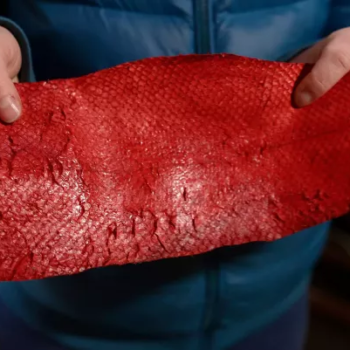|
|
A day at the beach is a quintessential summer pastime, offering a blissful escape from the rigors of daily life. The warm sun, soothing waves, and sandy shores create an idyllic backdrop for relaxation and rejuvenation. However, amidst the enjoyment, it’s crucial to remember the importance of sun protection.
While soaking up the sun’s rays can feel invigorating, it poses significant risks to your skin’s health. Without proper protection, prolonged sun exposure can lead to sunburn, premature aging, and even increase the risk of skin cancer. This is where sunscreen becomes your greatest ally, offering protection against harmful UV rays that can cause damage to skin cells.
However, not all sunscreens are created equal. Conventional options often contain harmful chemicals that pose risks to your health and harm the delicate balance of marine ecosystems. Enter natural sunscreens – a suitable choice for sun-seekers and environmentalists alike.
In this comprehensive guide, we’ll explore natural sunscreens, uncovering their benefits for both skin and planet. From understanding how they work to discovering the best products on the market, join us on a journey towards sun-kissed skin and eco-friendly practices. Protect your skin, preserve the planet, and make every day at the beach or outdoors a safe and sustainable adventure.
Key Takeaways
-
- Sunscreen is critical in shielding our skin from the sun’s harmful ultraviolet (UV) rays.
-
- SPF, or Sun Protection Factor, is a crucial aspect of sunscreens, serving as a yardstick for the level of protection they provide against the sun’s harmful ultraviolet (UV) rays.
-
- While basking in the sun can be enjoyable, failing to wear sunscreen can lead to a host of adverse effects, including sunburn, accelerated aging, a higher risk of skin cancer, compromised immune function, uneven skin tone, and eye damage.
-
- The global sun care products market reached a valuation of USD 13.9 billion in 2022.
-
- While product consumption of conventional sunscreens has surged, concerns regarding their chemical compositions have grown in tandem.
-
- The demand for organic sunscreen products has witnessed a notable surge across developed and developing regions.
-
- Natural sunscreens offer effective protection without harmful chemicals.
-
- From vegan and cruelty-free sunscreens recommended by dermatologists to products with natural and organic ingredients, we provide 12 of the best natural sunscreens in the market that will provide worry-free sun protection while respecting your skin and the environment.
-
- Choosing mineral-based formulas helps preserve coral reefs and marine life.
-
- Look for broad-spectrum SPF to shield against UVA and UVB rays.
-
- Opt for biodegradable packaging to further reduce environmental impact.
-
- Use sunscreen in conjunction with other sun safety measures, including staying in the shade and wearing proper clothing, a hat, and sunglasses.
Sunscreen and How It Works
Sunscreen is critical in shielding our skin from the sun’s harmful ultraviolet (UV) rays, utilizing a blend of ingredients to mitigate potential damage.

Image Source: https://www.cancercouncil.com.au/news/how-does-sunscreen-work/
According to the Cancer Council NSW, all sunscreens consist of two essential components: the active ingredient and the emulsion. The active ingredient, categorized as UV absorbers or UV reflectors, provides sun protection by either absorbing or reflecting UV radiation.
UV absorbers, often called “organic” chemicals due to their carbon atoms, convert UV radiation into minimal heat. Some target UVB rays, known for causing sunburn and contributing to skin cancer risk, while others focus on UVA rays, which can penetrate deeper skin layers and compromise immune response to DNA damage.
Broad-spectrum sunscreen, covering both UVA and UVB, offers optimal protection. UV reflectors, mainly oxides like zinc oxide and titanium dioxide, absorb and scatter UV radiation. Most sunscreens contain multiple active ingredients, often six or more.
The emulsion, such as lotion or cream, carries the active ingredient and is typically a combination of oil and water. It preserves the product, enhances water resistance, influences texture and scent, and aids skin adhesion.
Understanding SPF
When discussing sunscreens, we always hear the term SPF, but its significance may not always be clear. According to the US Food and Drug Administration (US FDA), SPF, or Sun Protection Factor, is a crucial aspect of sunscreens, serving as a yardstick for the level of protection they provide against the sun’s harmful ultraviolet (UV) rays.
This numerical value represents the degree to which a sunscreen can prevent sunburn compared to unprotected skin. For instance, if someone typically experiences sunburn after 10 minutes of sun exposure without sunscreen, using a sunscreen with SPF 30 theoretically extends that duration to 300 minutes, assuming proper application and reapplication.
Understanding SPF goes beyond just knowing the numbers. It’s essential to comprehend how it relates to solar exposure time and the amount of solar energy absorbed by the skin. Contrary to common misconceptions, SPF is not directly correlated with the length of time one can spend in the sun. Instead, it primarily indicates the level of protection against sunburn. Factors such as solar intensity, geographical location, skin type, and sunscreen application play crucial roles in determining actual sun exposure and protection.
SPF values typically range from 15 to 50 or higher, with higher numbers providing greater protection. However, it’s important to note that SPF is not linear. SPF 30 does not offer double the protection of SPF 15; rather, it blocks approximately 97% of UVB rays, while SPF 15 blocks about 93%. The difference in protection between SPF values becomes more marginal as the numbers increase.
Below is a video produced by the US Food and Drug Administration that visually explains sunscreens and SPF.
The Dangers of Not Wearing Sunscreen
Unprotected exposure to the sun’s harmful ultraviolet (UV) rays poses significant risks to your skin’s health and overall well-being. While basking in the sun can be enjoyable, failing to wear sunscreen can lead to a host of adverse effects, both short-term and long-term.
-
- Increased Risk of Sunburn: Without the protective barrier of sunscreen, our skin becomes vulnerable to sunburn, characterized by redness, pain, and peeling. Sunburn causes discomfort and indicates damage to the skin cells, which can contribute to premature aging and increase the risk of skin cancer.
-
- Accelerated Aging: Prolonged exposure to UV radiation accelerates the aging process, leading to the development of wrinkles, fine lines, and age spots. UV rays penetrate the skin’s layers, breaking down collagen and elastin fibers, which are essential for maintaining skin elasticity and firmness.
-
- Higher Risk of Skin Cancer: UV radiation is a known carcinogen capable of damaging the DNA in our skin cells and triggering mutations that can lead to skin cancer. Failure to protect our skin with sunscreen increases the likelihood of developing various types of skin cancer, including melanoma, basal cell carcinoma, and squamous cell carcinoma.
-
- Compromised Immune Function: UV radiation suppresses the skin’s immune response, making it more difficult for the body to defend against infections and other environmental stressors. Prolonged sun exposure weakens the skin’s natural defenses, leaving it susceptible to infections, inflammation, and other dermatological conditions.
-
- Uneven Skin Tone: Sun exposure without protection can lead to uneven pigmentation and discoloration, commonly known as sunspots or hyperpigmentation. These dark patches develop due to melanin production in response to UV exposure, and they can be challenging to fade without proper skincare and sun protection measures.
-
- Eye Damage: UV radiation can also harm the delicate tissues of the eyes, leading to conditions such as cataracts, macular degeneration, and photokeratitis (sunburn of the cornea). Wearing sunglasses with UV protection is essential for safeguarding eye health in addition to applying sunscreen to the skin.
The Market for Sunscreens
The sunscreen market is vast, with countless options available. From traditional chemical formulas to emerging natural and organic alternatives, consumers have a plethora of choices.
According to a recent report by Fortune Business Insights, the global sun care products market reached a valuation of USD 13.9 billion in 2022. Projections indicate that by 2030, it is poised to expand to USD 19.65 billion, reflecting a robust Compound Annual Growth Rate (CAGR) of 4.5%.
This surge in market growth can be attributed to escalating concerns regarding skin health amidst rising UV exposure. Additionally, heightened awareness of sun care practices and a shift in consumer preferences towards premium cosmetic products are expected to fuel the demand for sun care items even further.

Image Source: https://www.fortunebusinessinsights.com/sun-care-products-market-103821
Skepticism Over Conventional Sunscreen
While product consumption of conventional sunscreens has surged, concerns regarding their chemical compositions have grown in tandem.
A post published on Time mentioned that studies have indicated a correlation between frequent sunscreen use and elevated levels of oxybenzone in urine. However, conclusive evidence regarding the potential harm of UV filter absorption in humans remains elusive.
Furthermore, the article noted several other studies suggested possible associations between sunscreen chemicals, particularly oxybenzone, and hormone, kidney, and reproductive function alterations. Animal studies have also raised concerns about oxybenzone’s potential link to increased cancer risk.
Dr. Jennifer Lin, an assistant professor of dermatology at Harvard Medical School, notes the lack of definitive evidence supporting oxybenzone’s harm to humans. Concerns often stem from studies conducted on rats, where oxybenzone was ingested rather than applied topically. Dr. Lin referenced a 2017 study in the Journal of the American Academy of Dermatology, saying that it would take an individual 277 years of consistent sunscreen use to reach the equivalent systemic dose observed in these rat studies. While oxybenzone may cause allergic reactions in some individuals, such occurrences are rare.
Despite these findings, questions persist regarding the safety of sunscreen usage. Nevertheless, regulatory bodies and various medical associations continue to endorse sunscreen use. Their stance reflects the overwhelming consensus that the benefits of sunscreen in protecting against harmful UV radiation far outweigh the potential risks associated with its chemical constituents.
12 Best Natural Sunscreens for Skin and Environmental Wellness
Increasing awareness of health and environmental concerns in relation to conventional sunscreen has fueled the demand for safer, eco-friendly options.
As per Fact.MR, the demand for organic sunscreen products has witnessed a notable surge across developed and developing regions. This trend is propelled by increasing health consciousness and a growing awareness of the adverse effects associated with artificial and chemical-based products. Consequently, manufacturers increasingly focus on producing sun care products infused with organic and natural ingredients, employing innovative and medically advanced manufacturing techniques.
Given this shift towards healthier and eco-conscious alternatives, consumers seeking sunscreens that prioritize skin health and environmental sustainability are met with an abundance of options. To simplify your search, we’ve curated a list of 12 natural sunscreens that offer both skin-friendly benefits and environmental responsibility.
1. Badger Active Mineral Sunscreen SPF 30
Badger’s Active Mineral Sunscreen SPF 30 offers broad-spectrum protection against harmful UV rays with non-nano zinc oxide. Its main ingredients, including zinc oxide, sunflower oil, and beeswax, work together to create a biodegradable formula that is safe for sensitive skin and coral reefs. This sunscreen is worth using for its gentle yet effective protection, ensuring peace of mind for your skin and the environment.
2. Alba Botanica Sheer Mineral Sunscreen SPF 30
Alba Botanica’s Sheer Mineral Sunscreen SPF 30 boasts a fragrance-free, dermatologist-tested formula crafted with utmost care. Enriched with key ingredients like zinc oxide, aloe vera, and sunflower seed oil, it delivers gentle yet potent protection against harmful UV rays.
Its non-greasy formulation ensures a comfortable wear experience suitable for all skin types, making it an excellent choice for individuals with sensitive skin or anyone seeking a dependable sunscreen option. Endorsed by the Skin Cancer Foundation, this sunscreen underscores its efficacy and reliability in safeguarding your skin against sun damage.
3. Thinksport Safe Sunscreen SPF 50+
Thinksport’s Safe Sunscreen SPF 50+ stands as a renowned sun care solution, earning the prestigious EWG Rating of 1 since 2010. Catering to athletes, outdoor enthusiasts, and eco-conscious consumers, this award-winning product offers robust SPF protection and boasts a water-resistant formula, ideal for outdoor activities.
Crafted with key ingredients such as zinc oxide, jojoba oil, and olive oil, it ensures effective sun protection without resorting to harmful chemicals like oxybenzone. As a reef-friendly sunscreen, it not only shields your skin but also safeguards marine ecosystems, aligning with your environmental values. Whether you’re seeking efficacy, safety, or cruelty-free formulations, Thinksport’s Safe Sunscreen SPF 50+ is an excellent choice for all your sun care needs.
Your Weekly Sustainability News!
By subscribing you agree to our Privacy Policy
4. COOLA Mineral Face SPF 30 Matte Tint Moisturizer
COOLA’s Mineral Face SPF 30 Matte Tint Moisturizer elevates your daily skincare regimen by seamlessly blending SPF protection with a matte finish. Formulated with titanium dioxide, rosehip oil, and plankton extract, its certified organic ingredients offer reliable protection suitable for everyday wear.
This tinted moisturizer is free from fragrances and silicones and aligns with your skincare preferences and environmental values, complying with the Hawaii Reef Compliant Act 104. It provides seamless coverage and protects against harmful UV rays and premature aging, promoting healthy and radiant skin.
For added convenience, this TSA-approved size packaging ensures that you can enjoy your skincare regimen even while traveling, making it a versatile and essential addition to your beauty routine.
5. Goddess Garden Organics Everyday SPF 30 Natural Mineral Sunscreen
Goddess Garden Organics Everyday SPF 30 Natural Mineral Sunscreen is meticulously crafted to deliver gentle yet effective protection for daily use. Proudly produced by Goddess Garden, a woman-owned company committed to safe and sustainable practices since 2005, this sunscreen embodies their dedication to quality and environmental responsibility.
Thanks to its key ingredients like zinc oxide, coconut oil, and shea butter, Goddess Garden Organics Everyday SPF 30 Natural Mineral Sunscreen boasts a non-greasy formula specifically designed for sensitive skin. This reef-friendly sunscreen offers dependable sun protection without compromising skin health, ensuring a safe and enjoyable experience for everyday wear.
6. Blue Lizard Australian Sunscreen Sensitive SPF 30+
Blue Lizard’s Australian Sunscreen Sensitive SPF 30+ comes highly recommended by dermatologists and is specially formulated to cater to individuals with sensitive skin. Free from fragrances, it offers a gentle yet effective solution for sun protection.
Enriched with zinc oxide, jojoba oil, and vitamin E, this sunscreen provides comprehensive UV protection, shielding against 97% of harmful rays without causing irritation. With added Hyaluronic Acid and antioxidants, it ensures skin stays nourished and hydrated throughout the day.
Designed to prioritize skin health and environmental sustainability, this sunscreen is reef-safe, containing no Oxybenzone and Octinoxate. Whether you have sensitive skin or simply prefer a gentle yet reliable sunscreen option, Blue Lizard’s Australian Sunscreen Sensitive SPF 30+ is an excellent choice for all skin types.
7. All Good Mineral Sunscreen Butter SPF 50+
All Good’s Mineral Sunscreen Butter SPF 50+ delivers superior sun protection in a convenient stick format, perfect for quick and easy applications on the go. Crafted from a mineral (zinc oxide) blend and botanical ingredients (coconut oil and jojoba oil), this sunscreen offers a water-resistant formula that matches extreme weather conditions and outdoor activities.
Designed for long-lasting wear, this sunscreen butter absorbs quickly into the skin without leaving a greasy residue, ensuring comfort throughout all your adventures. Additionally, it holds Leaping Bunny certification, guaranteeing cruelty-free testing practices. Moreover, it is biodegradable and coral reef friendly, free from oxybenzone, octinoxate, octocrylene, PABA, and other harmful preservatives or additives. With All Good’s Mineral Sunscreen Butter SPF 50+, you can enjoy worry-free sun protection while respecting your skin and the environment.
8. Raw Elements Face + Body Sunscreen SPF 30
Raw Elements’ Face + Body Sunscreen SPF 30 provides comprehensive broad-spectrum UVA-UVB protection for both your face and body. Packaged in a recyclable and eco-friendly tin, it offers convenience and portability for on-the-go use.
Crafted with a carefully selected blend of ingredients, including zinc oxide, green tea extract, and black tea extract, this sunscreen boasts a gentle and non-GMO formula that is suitable for sensitive skin, even for kids. Reef-friendly and lightweight, it effectively shields against the sun’s harmful rays without leaving any residue or greasiness behind, ensuring a comfortable and worry-free experience for all outdoor adventures.
9. Sun Bum Mineral SPF 30 Sunscreen Lotion
Sun Bum’s Mineral SPF 30 Sunscreen Lotion delivers a lightweight, fragrance-free solution for sun protection, free from greasy residue. Crafted with a vegan and reef-friendly formula, it blends the power of zinc oxide, coconut oil, and shea butter to offer effective defense against UV rays without clogging pores.
This sunscreen lotion absorbs quickly into the skin and remains effective for up to 80 minutes, ensuring nourished and protected skin without any unsightly white residue. Suitable for all skin types, it is hypoallergenic, dermatologist tested, and cruelty-free. Moreover, it adheres to Hawaii Act 104 Reef Compliance, reinforcing its commitment to environmental sustainability.
10. Babo Botanicals Clear Zinc Sunscreen SPF 30
Babo Botanicals’ Clear Zinc Sunscreen SPF 30 offers transparent protection without the inconvenience of a white residue. Its fast-absorbing and hydrating formula features zinc oxide and a blend of 24 plant-based ingredients, including nourishing sunflower oil and soothing shea butter, to moisturize and comfort the skin.
This potent sunscreen is hypoallergenic and fragrance-free, ensuring gentle yet effective sun protection suitable for sensitive skin of all ages. As one of the pioneering sunscreens to receive EWG Verification, and prominently featured in the EWG Sunscreen Guide for “Best Recreational Sunscreens,” it is a trusted choice for daily defense against harmful UV rays. With Babo Botanicals’ Clear Zinc Sunscreen SPF 30, you can rely on transparent and reliable sun protection while nurturing your skin with botanical goodness.
11. Green People Scent Free Sun Cream SPF 30
Green People’s Scent Free Sun Cream SPF 30 provides fragrance-free protection, specially formulated for sensitive skin prone to conditions like eczema and prickly heat. Enriched with natural and organic ingredients, including 60% organic Aloe Vera for soothing, Edelweiss for sun protection, Cocoa for nourishment and hydration, and Berry Wax for water repellence, it offers comprehensive care for your skin.
This reef-safe SPF contains no Oxybenzone or Octinoxate, ensuring it’s safe for use in the sea and swimming in rivers. Free from alcohol, silicone, parabens, and other harmful additives, it delivers gentle yet effective protection against UV rays without causing irritation.
Furthermore, with every bottle purchased, Green People contributes to the Marine Conservation Society, a UK charity dedicated to protecting seas and shorelines. The company’s donations have surpassed £130,000, supporting the efforts of these ocean champions.
12. Suntegrity Natural Moisturizing Face Sunscreen & Primer SPF 30
Suntegrity’s Natural Moisturizing Face Sunscreen & Primer SPF 30 offers a unique blend of broad-spectrum protection, moisturization, and primer benefits. Formulated with non-nano-size zinc oxide, Hyaluronic acid, astaxanthin, and red algae, it provides a powerful defense against harmful UV rays. Additionally, it features a nourishing blend of aloe vera, jojoba, sunflower, pomegranate, cucumber, and green tea, delivering antioxidant-rich protection against premature aging and sun damage.
This multi-functional sunscreen primes the skin for flawless makeup application, providing seamless coverage while ensuring all-day sun protection. It effectively reduces the appearance of redness, leaving the skin healthy and radiant.
Recognized for its exceptional performance, Suntegrity’s Natural Moisturizing Face Sunscreen & Primer SPF 30 has received numerous accolades, including the 2023 Dermascope Magazine Aestheticians Choice Winner, 2013 Allure Best of Beauty Award Winner and listing in EWG’s “Top Rated/Best Daily Use SPF” for 2023. With a Green Rating in the Skin Deep Cosmetic Safety Database, approval from the Good Face Project, and PETA and Leaping Bunny certifications, this sunscreen is a trusted choice for daily sun protection and skincare.
Getting the Most Out of Natural Sunscreens
When it comes to choosing and using natural sunscreens, there are several factors to keep in mind to ensure optimal protection and environmental responsibility:
Choosing Natural Sunscreen
-
- SPF Level: Select a sunscreen with an appropriate SPF level based on your skin type and the intensity of sun exposure. Higher SPF levels offer greater protection against UV radiation.
-
- Water Resistance: When engaging in water or heavy perspiration activities, opt for a water-resistant sunscreen to ensure continuous protection. Remember that most sunscreens’ water resistance decreases over time, so it’s essential to reapply after swimming or sweating profusely to maintain its effectiveness.
-
- Skin Sensitivity: Consider your skin’s sensitivity and any specific concerns such as allergies or eczema. Look for hypoallergenic and fragrance-free formulas designed for sensitive skin.
-
- Expiration Date: Check the sunscreen’s expiration date to ensure its effectiveness. Sunscreen typically has a shelf life of up to three years, but exposure to high temperatures can shorten this lifespan.
Using Natural Sunscreen
-
- Generous Application: Apply sunscreen generously to all exposed skin areas, ensuring even coverage. Don’t forget commonly overlooked areas like ears, neck, and feet.
-
- Reapplication: Reapply sunscreen every two hours or more frequently if you’re swimming or sweating heavily. Even water-resistant sunscreens can lose effectiveness with prolonged water exposure.
-
- Biodegradable Packaging: Opt for sunscreens with biodegradable packaging to minimize environmental impact. Look for options made from recyclable materials or packaged in sustainable formats.
In addition to the factors mentioned above, the Centers for Disease Control and Prevention also noted wearing sunscreen alone isn’t enough to protect your skin from the sun’s harmful rays. Hence, the organization also encourages you to take other safety precautions, including:
-
- Staying in the Shade: Reduce sun damage and skin cancer risk by seeking shade under umbrellas, trees, or shelters. Even in shaded areas, wear sunscreen or protective clothing for protection against UV rays.
-
- Wearing Proper Clothing: Opt for long-sleeved shirts, long pants, and skirts whenever possible to shield your skin from UV rays. Alternatively, wear a T-shirt or beach cover-up made from tightly woven fabric. Remember, wet clothing offers less UV protection than dry clothing, and darker colors may offer more protection than lighter ones. Look for clothing certified for UV protection.
-
- Wearing a Hat: Choose a hat with a brim all around to shade your face, ears, and neck for maximum protection. Opt for tightly woven fabric hats, such as canvas, and avoid straw hats with holes. Darker hats may provide enhanced UV protection. If wearing a baseball cap, supplement with protective clothing, sunscreen, or shade for ears and neck.
-
- Wearing Sunglasses: Wear sunglasses to protect your eyes from UV rays and lower the risk of cataracts. Look for sunglasses blocking UVA and UVB rays, as they offer optimal protection. Wrap-around sunglasses are preferable as they prevent UV rays from entering from the sides. Most sunglasses in the United States meet this standard, regardless of price.
By considering the above-outlined factors, following proper application guidelines, and taking additional precautions, you can enjoy effective sun protection while minimizing your ecological footprint.
Here is a video from the Centers for Disease Control and Prevention providing more information on sun safety:
Conclusion
Protecting your skin shouldn’t come at the expense of the planet. By opting for natural sunscreens, you can shield yourself from harmful UV rays while minimizing environmental harm.
With a wide range of effective and eco-friendly options available, there’s no excuse not to prioritize your skin’s health and the planet’s wellbeing. Choose wisely, apply liberally, and enjoy the sun responsibly.
Frequently Asked Questions
What are the benefits of using natural sunscreens?
Natural sunscreens are free from harmful chemicals like oxybenzone and octinoxate, making them safer for your skin and the environment. They often contain ingredients like zinc oxide and titanium dioxide that provide effective sun protection.
How do natural sunscreens differ from chemical sunscreens?
Natural sunscreens use mineral blockers like zinc oxide and titanium dioxide to physically block UV rays. In contrast, chemical sunscreens absorb and filter UV rays using synthetic chemicals like avobenzone and homosalate.
Are natural sunscreens non-toxic?
Yes, most natural sunscreens are non-toxic as they are formulated without harmful ingredients like parabens, phthalates, and artificial fragrances commonly found in chemical sunscreens.
Can natural sunscreens provide broad-spectrum SPF protection?
Yes, many natural sunscreens offer broad-spectrum protection, which means they protect your skin from both UVA and UVB rays, helping prevent sunburn and skin damage.
What are some popular brands that offer natural and organic sunscreens?
Some popular brands known for their natural and organic sunscreens include Badger, ThinkSport, All Good, and Alba Botanica, among others.
Do natural sunscreens leave a white cast on the skin?
Some natural sunscreens, especially those with higher concentrations of mineral blockers like zinc oxide, may leave a slight white cast on the skin. Opt for tinted mineral sunscreens if you want to reduce the white cast effect.












